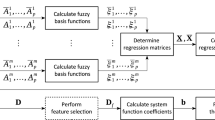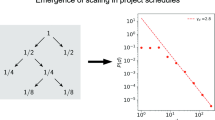Abstract
The paper focuses on how trip time variability affects re-scheduling of daily activities. A delay in a trip or an early arrival can contribute to changes in the timing, location of the next activity, and to the deletion/addition of some activities. We propose the idea of using fuzzy logic rules to “explain” the effect of variability in travel time on the benefits perceived by an individual with the changes, and to model different actions that the individuals take in order to re-establish the steadiness of the existing timetable. The fuzzy model is used to handle the imprecision of the data which is unstructured text. The results show that large deviations in trip duration are more likely to induce significant changes in the timetable whereas small deviations are either ignored or translated into modified timing of the next activity. In choosing an action, greater importance is assigned to the flexibility of the following activity, to the magnitude of the trip time saving/delay, and to the duration of the next activity. Time savings are not favoured unless they can be readily transferred into additional activity time allocated to the next activity or to a new activity. The fuzzy rules based system is capable of predicting satisfactorily the strategy of coping with uncertainty in travel times and the satisfaction sensed with the change.
Similar content being viewed by others
References
TA Arentze F Hofman H Mourik ParticleVan HJP Timmermans (2000) ArticleTitleAlbatross: A multi-agent rule-based model of activity pattern decisions Transportation Research Record 1706 136–144
T Arentze H Timmermans (2003) ArticleTitleModeling learning and adaptation processes in activity-travel choice Transportation 30 37–62
KW Axhausen T Gärling (1992) ArticleTitleActivity-based approaches to travel analysis: Conceptual frameworks, models, and research problems Transport Reviews 12 IssueID4 323–341
Bates JJ, Dix M & May T (1987) Travel time variability and its effects on time of day choice for the journey to work, In: Proceedings PTRC Summer Annual Meeting (pp. 293–311). Education and Research Services, London.
J Bates J Polak P Jones A Cook (2001) ArticleTitleThe valuation of reliability for personal travel Transportation Research E 37 IssueID2–3 191–229
ME Ben-Akiva JL Bowman (1998) Activity based travel demand model systems P Marcotte S. Nguyen (Eds) Equilibrium and Advanced Transportation Modeling, (pp Kluwer Academic Publishers Dordrecht 27–46
O Cordon F Herrera F Hoffman L Magdalena (2001) Genetic Fuzzy Systems: Evolutionary Tuning and Learning of Fuzzy Knowledge Bases World Scientific Singapore
M Delgado MA Vila W Voxman (1998) ArticleTitleA fuziness measure for fuzzy numbers Fuzzy Sets and Systems 94 IssueID2 205–216
ST Doherty EJ Miller KW Axhausen T Gärling (2002) A conceptual model of the weekly household activity/travel scheduling process E Stern I Salomon PHL Bovy (Eds) Travel Behaviour, Spatial Patterns, Congestion, and Modelling. Edwards Elgar Cheltenham 233–264
D Ettema H Timmermans (1997) Theories and Models of Activity-Patterns D Ettema H Timmermans (Eds) Activity-Based Approaches to Travel Analysis Elsevier Science Oxford 1–36
T Gärling (1998) Behavioural Assumptions Overlooked in Travel-Choice Modelling J. De D Ortuzar D Hensher S Jara-Diaz (Eds) Travel Behaviour Research: Updating the State of Play Elsevier The Netherlands 1–18
T Gärling R Gillholm W Montgomery (1999) ArticleTitleThe role of anticipated time pressure in activity scheduling Transportation 26 173–191
Golob TF & McNally MG (1995) A model of household interactions in activity participation and the derived demand for travel, Presented at the European Institute of Retailing and Service Studies (EIRASS), Conference on Activity-Based Approaches, Eindhoven, The Netherlands, May.
DA Hensher (2001) ArticleTitleThe valuation of commuter travel time savings for car drivers: evaluating alternative model specifications Transportation 28 IssueID2 101–118
SH Huang H Xing (2002) ArticleTitleExtract intelligible and concise fuzzy rules from neural networks Fuzzy Sets and Systems 132 233–243
H Ishibuchi T Yamamoto (2004) ArticleTitleFuzzy rule selection by multi-objective genetic local search algorithms and rule evaluation measures in data mining Fuzzy Sets and Systems 141 59–88
Kitamura R & Supernak J (1997) Temporal Utility Profiles of Activities and Travel: Some Empirical Evidence. In Stopher P, & Lee-Gosselin M (eds.) Understanding Travel Behaviour in an Era of Change. (pp. 339–350). Pergamon Press.
R Kitamura EI Pas CV Lula TK Lawton PE Benson (1996) ArticleTitleThe sequenced activity mobility simulator: An integrated approach to modeling transportation, land use and air quality Transportation 23 267–291
R Kitamura S Fujii (1998) Two computational process models of activity-travel behavior T Garling T Laitila K Westin (Eds) Theoretical Foundations of Travel Choice Modeling Elsevier Amsterdam, The Netherlands 251–280
GI Klir TA Folger (1988) Fuzzy Sets, Uncertainty, and Information Englewood Cliffs Prentice Hall
Kosko B (1992) Neural Networks and Fuzzy Systems, Prentice Hall.
A Krone H Taeger (2001) ArticleTitleData-based fuzzy rule test for fuzzy modelling Fuzzy Sets and Systems 123 343–358
I Meloni L Guala A Loddo (2004) ArticleTitleTime allocation to discretionary in-home, out-of-home activites and to trips Transportation 31 IssueID1 69–96
National Institute of Statistics Romania (NTS) (2003) Census of Population and Dwellings March 18–27, 2002. http://www.insse.ro/indexe.htm.
D Nauck R Kruse (1997) ArticleTitleA neuro-fuzzy method to learn fuzzy classification rules from data Fuzzy Sets and Systems 89 277–288
Nguyen HT & Walker EA (2000) A First Course in Fuzzy Logic (2nd edition), Chapman & Hall/CRC.
RB Noland KA Small PM Koskenoja X Chu (1998) ArticleTitleSimulating travel reliability Regional Science and Urban Economics 28 IssueID5 535–564
C O’Fallon C Sullivan DA Hensher (2004) ArticleTitleConstraints affecting mode choices by morning car commuters Transport Policy 11 IssueID1 17–29
J de D Ortúzar A Iacobelli (1998) ArticleTitleMixed modeling of interurban trips by coach and train Transportation Research A 32 IssueID5 345–357
CS Papacostas PD Prevedouros (2001) Transport Engineering and Planning EditionNumber3 Prentice Hall New Jersey
RM Pendalya CR Bhat (2004) ArticleTitleAn exploration of the relationship between timing and duration of maintenance activities Transportation 31 429–456
H Roubos M Setnes (2001) ArticleTitleCompact and transparent fuzzy models and classifiers through iterative complexity reduction IEEE Transactions on Fuzzy Systems 9 IssueID4 516–524
Schönfelder S (2001) Some notes on space, location and travel behaviour, paper presented at the 1st Swiss Transport Research Conference, Monte Verita/Ascona, March, 1–3.
E Stern (1998) Travel Choice in Congestions: Modeling and Research Needs Gärling (Eds) et al. Theoretical Foundations of Travel Choice Modeling Elsevier Amsterdam 173–199
H Timmermans P Waerden Particlevan der M Alves J Polak S Ellis AS Harvey S Kurose R Zandee (2002) ArticleTitleTime allocation in urban and transport settings: An international, interurban perspective Transport Policy 9 79–93
Transportation Research Board (TRB) (2003) International Transit Studies Program. Transit Operations in Central and Eastern Europe, Transit Cooperative Research Program sponsored by Federal Transit Administration. Research Results Digest 62: September.
E Tron M Margaliot (2004) ArticleTitleMathematical modeling of observed natural behavior: A fuzzy logic approach Fuzzy Sets and Systems 146 437–450
S Varki B Cooil RT. Rust (2000) ArticleTitleModeling fuzzy data in qualitative marketing research Journal of Marketing Research 37 IssueID4 480–490
S Wu MJ Er Y Gao (2001) ArticleTitleA fast approach for automatic generation of fuzzy rules by generalized dynamic fuzzy neural networks IEEE Transactions on Fuzzy Systems 9 IssueID4 578–594
R Yagar D Filev (1994) Essentials of fuzzy modeling and control John Wiley & Sons New York
LA Zadeh (1965) ArticleTitleFuzzy sets Information and Control 8 338–353
Author information
Authors and Affiliations
Corresponding author
Rights and permissions
About this article
Cite this article
Olaru, D., Smith, B. Modelling behavioural rules for daily activity scheduling using fuzzy logic. Transportation 32, 423–441 (2005). https://doi.org/10.1007/s11116-005-0392-z
Issue Date:
DOI: https://doi.org/10.1007/s11116-005-0392-z




